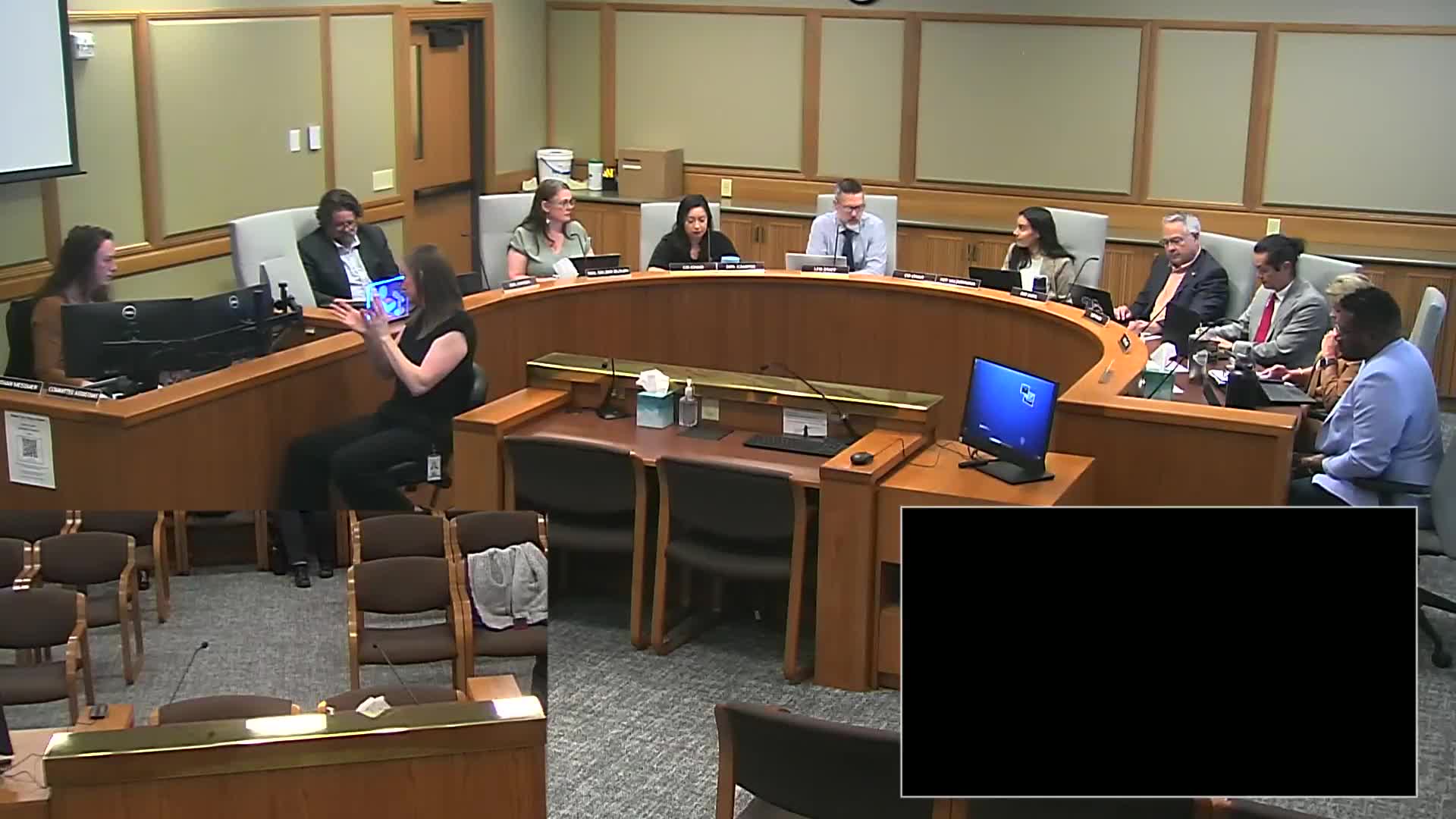Subcommittee advances Oregon Medical Board budget, approves fee increases and new positions
Get AI-powered insights, summaries, and transcripts
Subscribe
Summary
The Joint Subcommittee on Human Services on May 5 advanced House Bill 50 22, the Oregon Medical Board budget bill, to the full committee with a do‑pass recommendation after adopting Legislative Fiscal Office adjustments and amendments.
The Joint Subcommittee on Human Services on May 5 advanced House Bill 50 22, the Oregon Medical Board budget bill, to the full committee with a do‑pass recommendation after adopting Legislative Fiscal Office (LFO) adjustments and amendments.
LFO recommended an other‑funds budget of $20,743,151 for the 2025‑27 biennium with 44 positions (43.5 full‑time equivalent), a 3.3% increase from the current service level. LFO’s package funds one permanent part‑time associate medical director (0.5 FTE), a limited‑duration project manager position to restart the agency’s licensing and compliance system project, and increases for health professional services program costs, criminal background checks, and merchant service fees. The LFO analyst told the subcommittee, “Revenue adjustments include 2 fee increases and 2 new fees projected to generate $1,600,000 in the 2527 biennium.” (LFO analyst, Legislative Fiscal Office).
Why it matters: The budget changes affect licensing fees paid by health professionals across Oregon and fund staffing and an information‑technology restart that the agency says is needed to resume its licensing and compliance work.
Key provisions adopted
- Budget totals and staffing: LFO recommended $20,743,151 other funds for 2025‑27, 44 positions and 43.5 FTE, a 3.3% increase from current service level. The recommendation adds a permanent part‑time associate medical director at 0.5 FTE and a limited‑duration project manager 2 position funded from the project’s existing expenditure limitation to support restarting the licensing and compliance system.
- Fee changes and revenue: LFO projects $1,600,000 in additional revenue in 2025‑27 from the combined fee changes. Specific changes adopted in the LFO recommendation include: a 20% increase in late registration fees for physician assistants and acupuncturists effective July 1, 2026; a 20% increase in full and limited license registration fees across all licensed professions effective July 1, 2026; a new $25 annual pass‑through fee per license for the Health Professionals Services Program effective July 1, 2025; and a new $75 predetermination review fee tied to Senate Bill 1552 (effective July 1, 2025) to recover staff time for predetermination reviews.
- Other budget adjustments: Packages adopted also moved $35,000 from office expenses to attorney general expenses to align with actuals, and increased expenditure limitations by $125,000 (health professionals services program), $110,000 (criminal background check costs to Oregon State Police), and $80,000 (credit card/merchant fees) to cover growing demand and transaction costs.
Legal and statutory reference
The committee discussed the predetermination review fee established in response to Senate Bill 1552 (2024). As LFO summarized, SB 1552, section 44, requires licensing boards to provide a process for a person convicted of a crime to petition a licensing board for a determination in advance of applying for a license; the statute allows the board to charge a reasonable fee to recover the cost of making that determination.
Committee action and dissent
The co‑chairs called four separate motions consistent with LFO practice: adoption of the LFO adjustments to current service level, adoption of key performance measures, adoption of the -1 amendment to HB 50 22, and moving HB 50 22 as amended to the full committee with a do‑pass recommendation. All motions were carried. One committee member recorded a no vote on the final motion and explained their opposition on the record: “I am gonna be a no on this. I’m concerned about the fee increases, and I have some trouble with the fact that the board was actively lobbying against the PAs, the same group they’re raising the fees on. They’re using fees they raise from the PAs to lobby against the PAs,” (Committee member, name not specified).
The same member also expressed concern about the agency’s previous expenditures on its licensing system and characterized the need to restart the project after prior spending as problematic. The transcript records no formal finding of an ethical violation; the member said, “I don’t know if that’s an ethical violation. It’s probably not, but it still doesn’t seem right.” (Committee member, name not specified).
Procedure and next steps
As the LFO analyst and co‑chairs explained, a subcommittee work session does not take new public testimony; instead the panel acts on the LFO recommendation and any proposed amendments after prior hearings. The co‑chairs assigned a senator to carry the bill in the full committee and the co‑chair to carry the item on the House floor. The committee adjourned and will reconvene next week.
Ending note
The budget advanced by the subcommittee will now be considered by the full committee and then by both chambers. The predetermination fee and the planned IT project restart are likely to be areas of continued scrutiny as the bill moves forward.
